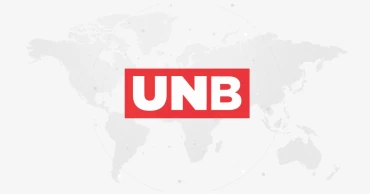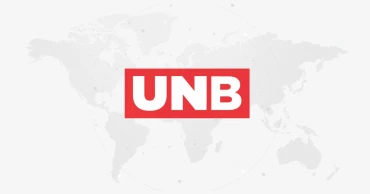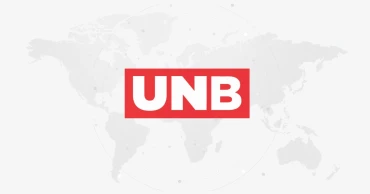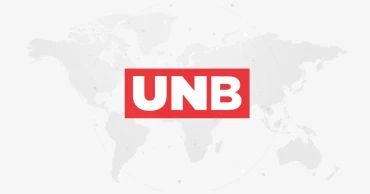Dollar rate
Taka gains strength as dollar rate falls by nearly Tk 3
The US dollar has depreciated by approximately Tk 2.90 against the Bangladeshi Taka over the past 10 days, primarily due to reduced demand for dollars and a strong inflow of remittances and export earnings.
On Sunday, most banks were seen purchasing remittance dollars at Tk 120, a notable drop from the Tk 122.80-Tk 122.90 rates offered at the start of last week.
While some banks reported buying remittance dollars at up to Tk 120.50 on Thursday, foreign exchange houses noted that despite slightly higher initial offers, no bank was willing to pay more than Tk 120 by the end of the day.
Reform dialogue: Consensus reached on curbing abuse of emergency promulgation
The ongoing tariff negotiations with the USA and a reduced demand for imports have also contributed to the falling dollar rate.
Despite the Bangladesh Bank's move to introduce market-based exchange rates, the US dollar has continued its downward trend, easing concerns over volatility in the foreign exchange market.
7 months ago
Dollar rate for remittance soars as banks compete for overdue payments
The US dollar rate for remittances has risen again by 50 basis points, reaching Tk 122.5.
Officials from various banks said that over the past two weeks, the price of the dollar has increased by at least 50 basis points, now standing at Tk 122.5 per dollar.
After a brief period of stability in the foreign exchange market, the remittance dollar rate has surged due to mounting pressure from overdue import payments.
BB-Dollar: Taka loses 12.72% value in 2024 as dollar strengthens
Despite this, banks continue to officially display the dollar price at Tk 122, as per Bangladesh Bank’s directive.
In late December, the central bank verbally instructed banks to cap the maximum buying and selling rate for remittance dollars at Tk 122.
It also mandated that the difference between buying and selling rates must not exceed Tk 1, warning of fines for non-compliance.
Bangladesh Bank identifies reasons behind increased dollar demand
A senior official of a private bank told UNB that the remittance dollar rate had remained between Tk 121.5 and Tk 122 in line with central bank’s instructions.
However, with overdue import payments piling up, competition among banks to secure dollars has intensified, leading some banks to purchase remittance dollars at a higher price.
At a meeting on Monday (Jan 27), the central bank directed banks to expedite payments for all overdue import liabilities and back-to-back letters of credit (LCs).
This directive, issued during a meeting of the Authorised Dealers Forum, further escalated dollar demand.
Following this, the remittance dollar rate surged, rising by at least 50 basis points to reach Tk 122.5 per dollar.
1 year ago
Selling dollars at higher prices: What is Bangladesh Bank’s action against treasury heads of 10 banks?
Bangladesh Bank is working to take disciplinary action against the treasury heads of 10 commercial banks over selling US dollars at prices higher than the fixed rate.
The central bank sent letters to these banks mentioning the offence with instructions of punishment.
Bangladesh Bank stated in the letter that the treasury chief cannot ignored the responsibility of such offence.
Read: Bangladesh Bank assures businesses interest rate won't go too high
Banks’ treasury departments handle the demand and supply of money and dollars. In some banks, there is also an officer, of deputy managing director rank, as the head of the treasury department.
According to information from various sources, the 10 concerned banks are: Mercantile Bank, Premier Bank, BRAC Bank, Madhumati Bank, Midland Bank, Exim Bank, Social Islami Bank, Al-Arafah Islami Bank, Shahjalal Islami Bank and Trust Bank.
Read: Bangladesh Bank relaxes rules for EFPF loan payment
Sources said this number of banks may increase.
In August last year, Bangladesh Bank removed the heads of the treasury departments of six domestic and foreign banks based on the same complaint. But in the end, the regulatory body could not uphold that decision.
Chairman of Association of Bankers, Bangladesh (ABB) and Managing Director (MD) of BRAC Bank, Salim RF Hossain, said that this is a bilateral issue between the central bank and the respective scheduled banks. “Such letters come regularly. Therefore, I do not want to make any specific comments on this issue,” he said.
Read: Bangladesh Bank seeks explanations from 13 banks for selling dollars at higher prices
2 years ago
Commerce, Home ministries coordinating govt's tough stance on price gouging ahead of Ramadan
This year's Ramadan is still a couple of days away, but a segment of traders already appears eager to increase profit margins by raising the prices of different commodities.
The government of Bangladesh however claims to be on to them, and has taken various initiatives to keep the market stable during the holy month.
Prime Minister Sheikh Hasina has directed officials to increase surveillance across the country so that dishonest businessmen cannot make excessive profits. She particularly instructed the field-level administration to be on alert. The Commerce Ministry has said it will keep an eye on the traders so they cannot destabilize the market by creating any artificial crisis.
Even detectives from the law enforcement agencies under the Home Ministry have been instructed to keep their eyes open so that unscrupulous syndicates do not create an artificial crisis in Ramadan.
Read: Dates, fruits to be more costly during Ramadan due to LC opening crisis
In the past, it was noticed that traders increased the prices of goods several times before the start of market supervision ahead of Ramadan. Just before Ramadan, the demand for items like edible oil, sugar, pulses, chickpeas, spices, and so on increases. Traders take this opportunity and raise the prices of in-demand items. It is no different this time.
“Ramadan is a few days away. Like last year, I have bought sugar, pulses, and chickpeas at a much higher price. Every year the same thing happens. There is also an upswing in the vegetable market,” Wahid Fakir, a resident of Bhatara New Market, told UNB.
The prices of sugar, oil, ginger, onion, and other essential goods have all increased in the last week. Vegetables, fish, and meat prices are also going up. Although there is also no shortage of edible oil in the market, daily essentials are selling at an increased price rate every week.
"This year we are already on alert from before. No one will be spared, if there is an artificial crisis in the market. We, the local administration, including the law enforcement agencies, and consumer rights protection directorate, will continue to monitor the market with mobile courts,” Commerce Minister Tipu Munshi told UNB.
Read: People forced to return home with bags half full due to higher prices of chicken, meat, fish
“As preparation for Ramadan, I have had meetings with businessmen one to two months ago. That's when we asked them to increase imports. In particular, instructions have been given so that the banks open the LCs quickly for the import of food products,” he said.
“The government has taken all kinds of necessary initiatives to keep the prices of goods under control during Ramadan. We have warned the traders about the preparations in advance this year. Controlling commodity prices was a challenging affair at this time of global crisis and rise in dollar rate,” he also said.
“Despite this, dollars have been provided for import of all food products commonly used in Ramadan. Besides, the ministry has requested the NBR to reduce the duty and VAT to reduce the prices of commodities like sugar and edible oil,” said the minister. “In addition, we are taking several other programmes to control the prices of goods during Ramadan. Apart from the family card allocated for 1 crore families, sugar and chickpeas will be sold in truck-sales in Dhaka and divisional cities. NBR has also extended the time for import of rice by three more months."
“Hopefully, the prices of goods will be stable during Ramadan. The government's preparation in this regard is good enough,” added Tipu Munshi.
Read More: Have enough stock, no scope of price hike during Ramadan: Tipu
Asked about the role of law enforcement agencies in keeping the market stable during Ramadan, Home Minister Asaduzzaman Khan said, "The law enforcement agencies have been instructed to prevent the rise in the prices of goods.”
“Detectives have already been instructed to keep an eye so that unscrupulous syndicates do not create any artificial crisis around Ramadan and make the market unstable. Several strict steps have been taken, including conducting mobile courts, to control the prices of consumer goods by suppressing syndicates,” he said.
“Various strategies are being formulated to prevent artificial crises in the market and to take action against those who stockpile goods. Along with the police, the law enforcement agencies and consumer rights department, including RAB, will be active in the field, the intelligence surveillance will also be increased,” he also said.
Cabinet Secretary Mahbub Hossain said, “If there is an abnormal situation in the market, we can enforce the law. Every deputy commissioner has been told about this. They will monitor it very strictly. We will also monitor from here.”
Read More: Make marginal profit in Ramadan, Munshi urges businessmen
2 years ago
Exporters to get slightly higher rate of Tk 102 for one US dollar
Exporters will get Tk102 against a US dollar to repatriate their export income in Bangladesh.
The Association of Bankers Bangladesh (ABB) and Bangladesh Foreign Exchange Dealers’ Association (BAFEDA) announced the new dollar rate for exporters effective Monday.
This is up by one taka from the earlier rate of Tk. 101 per dollar.
Read more: FBCCI seeks dollars from reserves to import commodities for Ramadan
The leaders of ABB and BAFEDA held a meeting on Sunday night to determine the price of the dollar. It decided to increase the rate for export income, but the price of the dollar was kept unchanged in the case of payment of expatriate income and import duties.
As per the new decision, exporters will get Tk1.0 more against each dollar. And in terms of expatriate income, the dollar price has been kept unchanged at Tk 107.
Apart from this, the value of the dollar will be Tk 0.50 more than the average of expatriate and export earnings in terms of payment of import duties.
Read more: Remittance: Bangladesh Bank tells banks to provide Tk 107 per dollar
At present, the price of the dollar in expatriate income is Tk107 and that for export income is Tk102.
As a result, the average of expatriate and export income is Tk104.5. Adding Tk0.50 to this average will be Tk105 per dollar of import bills.
The greenback has been in short supply since March last year following Russia-Ukraine war that jolted global economy.
Read More: No dollar crisis in banks from next month: Salman F Rahman
3 years ago
ABB, BAFEDA will meet tomorrow to set uniform dollar rate for banks
Association of Bankers, Bangladesh (ABB) and Bangladesh Foreign Exchange Dealers’ Association (BAFEADA) will meet again tomorrow (September 11, 2022) to determine the uniform exchange rate of US dollar.
They (ABB and BAFEDA) will then formally inform Bangladesh Bank of their decision on the execution of a single rate of the dollar.
On Thursday, Bangladesh Bank had discussions with banks to determine what to do in the dollar market. Central bank’s Deputy Governor Ahmed Jamal chaired this joint meeting with ABB and BAFEDA leaders. At the end of the meeting, Governor Abdur Rouf Talukdar joined. But they could not finalise the decision on a single rate for dollar.
Read: BB revises cluster credit guidelines to boost small enterprises
Both organisations sought time to monitor the dollar market and understand the import-export situation before setting the unified rate of the dollar.
There has been volatility in the dollar market for several months. The central bank is struggling to keep the exchange rate of the dollar stable.
ABB Chairman and Managing Director of BRAC Bank Salim R. F. Hussain told UNB that the dollar market will stabilize in the next two months due to decrease in the transaction deficit in foreign trade.
Read The dancing dollar and the Bangladesh Bank
3 years ago
The dancing dollar and the Bangladesh Bank
The dollar to taka conversion rate has become an indicator of the state of the economy. It has been roughed up by the economic weather both global and local. One had almost gotten used to a dollar-taka rate of around 85 for a long while but that “stability “ didn’t survive in the storm. The rate began to climb rapidly like an agile Sherpa and crossed into three digits a month back. It was the first time in its economic history that this had happened.
But it was not just anxiety about the falling taka but greed of the dealers as well. Speculators and market players who used the rising price to cash in made the situation even stickier. And it wasn’t just the dealers and black market players but legit money exchangers and big banks too.
The Bangladesh Bank continued to dither for over a month before some actions were taken. Finally, control mechanisms and market forces have pulled the rates down from the peak 120 to 112 though these are just indicative numbers. What it however may be saying is that currency volatility is here to stay for a while. These rates are certainly not staying there.
Also read: MDs of 6 banks served show-cause notices for dollar manipulation
Banks, money dealers and migrants
Dhaka media reports that many had begun hoarding dollars and a new band of dealers had entered the market pulled in by the quick climbing rates along with the old one. Hoarding and selling currency is an old game but when scheduled banks become shady currency traders it’s unusual but not unexpected. That 6 top banks were named and punishments were meted out is a significant matter.
Its significant because the banks are top notch functioning ones and the decisions were not politically inspired but financial discipline based. It sent out a message that restrictions were on. Now BB has asked the respective banks to investigate and act.
Money exchangers and other kerb market dealers have also been brought under some discipline by restricting buying and selling margins. As restrictions on import have impacted, the pressure on dollars has eased a bit. While remittance is up this month, BB had admitted more dollars are being spent than what is earned. So the situation is dicey.
Also read: Dollar price in kerb market jumps to Tk120 amid short supply
Apparently, the currency speculators who were hoarding dollars have now started to sell off as prices are not shooting up. Those who have bought around 112 may face loss as the market may hover around this rate for a while. Observers however have pointed out that this rate too is not exact and the dollar may settle at its actual rate over time which could be higher. So rate swings are to be expected.
Lesson learnt
Apart from the difficulties posed by politically convenient decisions, the scenario shows that the Bangladesh Bank or the authorities were lazy in taking decisions, They hadn’t read the situation well when the upward swing began. This period of more than a month when the dollars went into a free fall was avoidable but was not avoided. Actions came much late and only when political costs became possible. Since the Bangladesh Bank is not an autonomous monetary management body, the buck goes and stops at the cabinet doors.
Tough situations can be softened significantly by tough decisions but decisions need to be taken quickly with expertise to back them. That’s what BB needs to prove.
3 years ago






.jpg)





